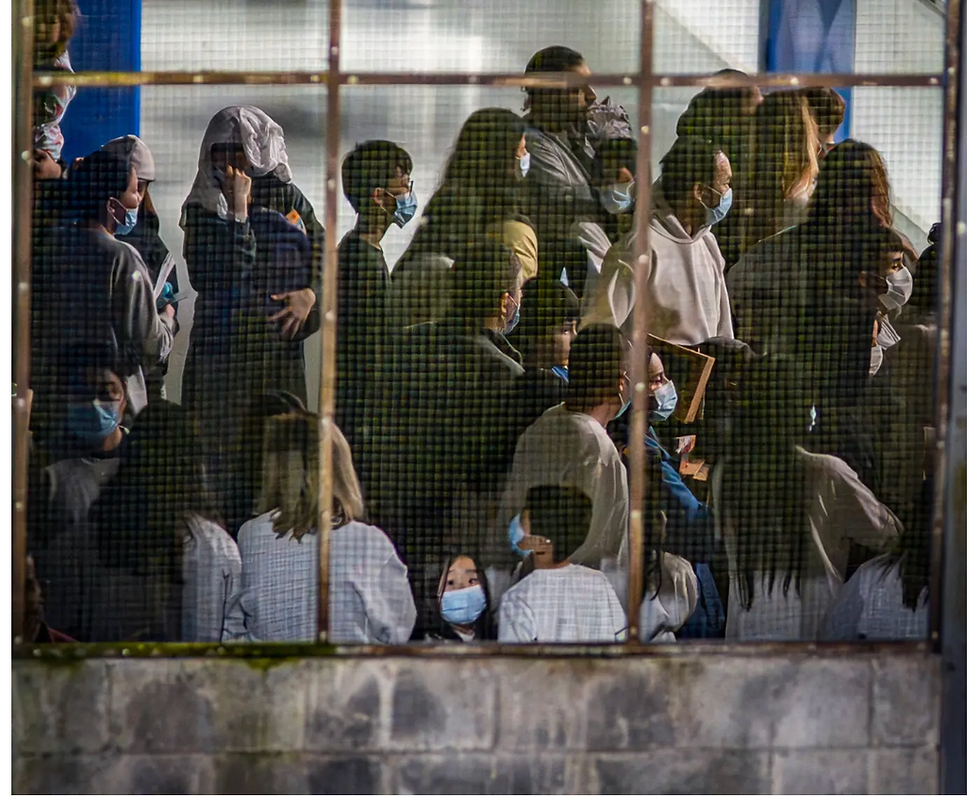Islamic Republic of Iran Held Liable for Torture of Mr. Abbas Amirentezam; Children Awarded Damages
- Herischi Law
- Sep 6, 2023
- 3 min read
In a historic ruling, the United States District Court for the District of Columbia, by Magistrate Judge Harvey’s order, has delivered justice for Mr. Abbas Amirentezam. Mr. Amirentezam was Iran's former Deputy Prime Minister and Ambassador to the five Scandinavian countries, who passed away while unjustly serving almost 40 years of unlawful incarceration and house arrest for fabricated charges of espionage. He was the longest-serving political prisoner in post-revolutionary Iran. The court found Islamic Republic of Iran responsible for the torture inflicted on Mr. Amirentezam while in their custody. Furthermore, the court has awarded significant compensatory and punitive damages to Mr. Amirentezam's children, who have endured profound suffering since their early childhood due to their father’s extreme torment.
This landmark court ruling is the first of its kind to formally acknowledge that Mr. Amirentezam, a highly respected politician who dedicated his life to human rights advocacy and rule of law, was subjected to torture while in Iranian custody. The decision unequivocally holds the government of Iran accountable for their actions in perpetrating this abuse.

The children of Mr. Amirentezam, who received a favorable judgment, have expressed their sentiments on the matter: "This decision solidifies our father's legacy as a man who endured years of torture and inhumane treatment, never yielding to his abusers. He consistently advocated for both domestic and international legal accountability for his wrongful conviction and the physical abuses he endured. He always instilled in us the belief that justice would eventually prevail and that victims would one day rise against the tyranny of the current government. Our father was taken from us in 1979 when he was arrested, and he spent his entire life behind bars in Iran's notorious Evin prison until his passing in 2018 while serving a life sentence. No amount of money can bring him back into our lives, nor can it restore the life he lost or rectify the injustices he endured. This judgment serves as a poignant reminder of the depth of pain we have endured within the framework of U.S. laws, but we knew there is no means to receive such judgement from Iran. We pursued this case to underscore the importance of accountability and to demonstrate that we can triumph over the regime that took our father away from us."
Mr. Ali Herischi of Herischi Human Rights Law Center, who represented the plaintiff in this action, expressed his sentiments regarding this significant moment for human rights advocacy in Iran. He stated, "This is a momentous occasion for human rights advocates in Iran and across the world. The federal court in the District of Columbia has unequivocally held Iran and IRGC liable for their torturous acts against one of Iran's most esteemed politicians, Mr. Abbas Amirentezam, who tirelessly fought for human rights throughout his life. Mr. Amirentezam is a symbol of unwavering resistance against injustice, serving his arbitrary life sentence without ever seeking power or requesting pardon. He consistently called for a fair and open retrial, an opportunity that was tragically denied to him. We hope this ruling not only solidifies his innocence but also sheds light on the brutal treatment and torture he endured while incarcerated in Iranian prisons."
The court has ruled in favor of Mr. Amirentezam's children, ordering Iran to compensate each of them with $3,250,000 in compensatory damages. In acknowledgment of the extreme severity of the torture endured by Mr. Amirentezam and the gravity of Iran's actions, the court has further mandated that government of Iran pay an equivalent sum in punitive damages to each of Mr. Amirentezam's children. It is important to note that this case was filed under the Foreign Sovereign Immunities Act in the District of Columbia. Given that Iran has no assets within the United States, it is important to clarify that plaintiffs will not be able to recover funds from blocked Iranian assets in the United States.





Comments